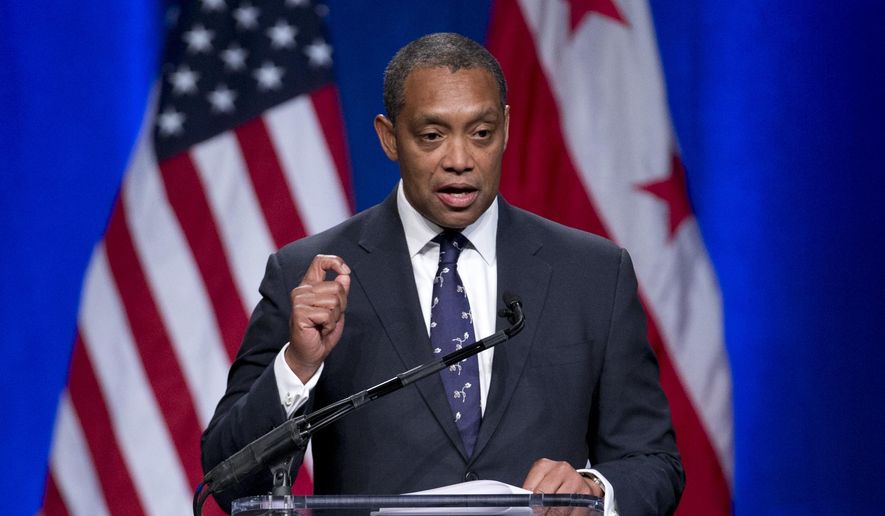D.C. Attorney General Karl Racine introduced legislation on Wednesday aimed at changing the way minors are prosecuted in the city.
The Redefinition of Child Amendment Act would require minors facing local law violations to begin their legal proceedings in family court. District law currently allows the attorney general to prosecute minors between the ages of 16 to 17 as adults for certain crimes, and a judge cannot overrule the prosecutorial decision.
“This change through legislation would modernize the definition of ’child’ to reflect modern science and commonsense: children are different than adults, and the decision to treat a child as an adult must be made carefully, based on the facts of the case and the comprehensive review of the rehabilitative prospects of the child,” the attorney general said in a press release Wednesday.
The attorney general says the law seeks to address the fact that Black minors in the District are more likely to become involved in the criminal justice system.
“By requiring judicial approval rather than simply relying on prosecutorial discretion, this legislation would reduce the impact of these racial disparities, help ensure the decision to treat a child as an adult is not impacted by racial bias, and make the system fairer,” he said.
The new law would also reduce a minor’s likelihood to re-offend because family court is typically where juvenile cases are heard and it offers rehabilitation services for youth, he said. If a minor is sent to a federal prison, he says the city cannot ensure they are getting the educational and rehabilitative services that they need.
“This needed legislation would bring our justice system into alignment with long-established scientific research that tell us the brain is not fully developed at ages 16 and 17, and that young people, even those who commit serious crimes, can learn and evolve into upstanding and valuable members of our community,” he said.
Under the law, a minor’s case could still be moved to adult court if a judge finds the minor poses a public safety risk or cannot be rehabilitated through the juvenile judicial system.
Eduardo Ferrer, a professor at George Washington and policy director of the Georgetown Juvenile Justice Initiative, tweeted that the legislation is “a big deal.”
“First, you should care and support if you want to improve public safety in D.C.,” Mr. Ferrer tweeted. “We have known for a long time that placing youth in the adult system actually makes them more likely to recidivate.”
At least seven other states have already passed similar laws including California, Hawaii, Kansas, Kentucky, Missouri, Tennessee and Texas.
• Emily Zantow can be reached at ezantow@washingtontimes.com.




Please read our comment policy before commenting.